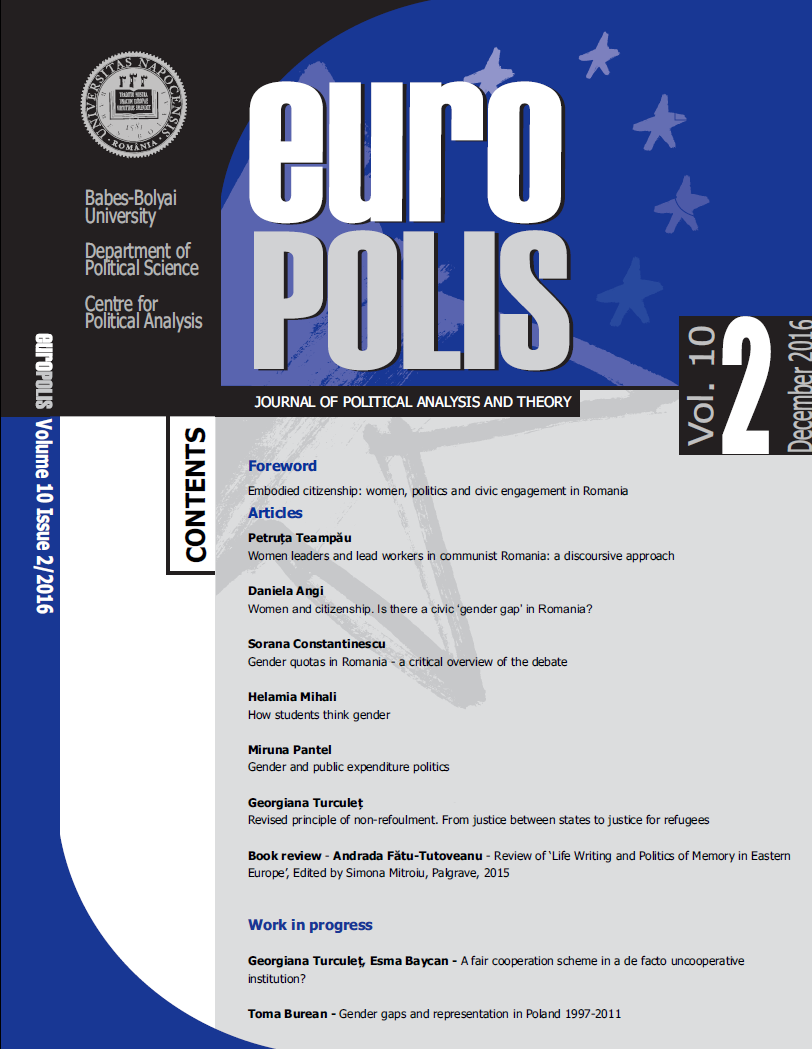Revised principle of non-refoulement. From justice between states to justice for refugees
Revised principle of non-refoulement. From justice between states to justice for refugees
Author(s): Georgiana TurculețSubject(s): Politics / Political Sciences
Published by: Centrul de Analiza Politica
Keywords: refugees;human rights;non-refoulement;
Summary/Abstract: Most philosophers concur with granting refugees a fundamental human right, in line with the Kantian hospitality principle, to sojourn in other territories temporarily and also more permanently, including a lifetime. David Miller argues that when it comes to protecting human rights, states’ actions should reflect primarily the ‘terms’ of states, as they see fit; furthermore, states do not have a duty to automatically admit refugees, if for example, other similarly well off states can admit them, and the principle of non-refoulement is fulfilled (Miller, 2013). Miller rules out the theoretical possibility of human rights violations, in claiming that a state can deny entry to refugees, only if they are not returned to the country of origin and third countries where their human rights will be violated, and provided that some other state would take charge of them. Miller’s state-centrist view, assuming the point of view of states primarily, and second, assuming that the only theoretically salient feature is when refugees do not receive admission and minimal protection, has pernicious implications. As an alternative, I argue that human rights are possible primarily when we view their defence as a primary moral concern, rather than instrumental and contingent upon what states see fit. I propose instead a philosophical view that genuinely assumes and acts upon the needs of refugees primarily, in both being admitted and rejected to sojourn in new territories.
Journal: Europolis, Journal Of Political Science And Theory
- Issue Year: 10/2016
- Issue No: 02 (20)
- Page Range: 211-229
- Page Count: 19
- Language: English

